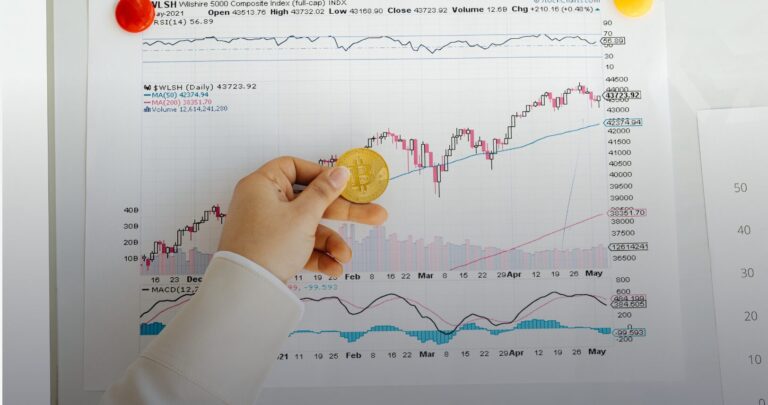The Netherlands has established itself as a major hub for innovative trading companies in Europe’s financial markets. With its strategic location, favorable regulatory environment, and robust technological infrastructure, the Netherlands attracts top trading companies that serve global markets while benefiting from European Union access.
Dutch trading companies have gained recognition for their sophisticated quantitative trading strategies, advanced technology platforms, and expertise across multiple asset classes. The innovative landscape in the Netherlands includes hedge funds and quant firms, which leverage advanced mathematics, data science, and algorithmic trading to achieve high performance and diversification. These firms combine traditional European financial expertise with cutting-edge innovation to compete effectively in global financial markets.
This comprehensive guide examines the top Dutch trading companies, their unique approaches to financial markets, and what makes them attractive options for investors and professionals seeking opportunities in quantitative trading, including roles at a proprietary firm.
- What types of trading companies are there
- What’s the difference between a trading company and a trading platform?
- Why pick quantitative trading firms in the Netherlands
- High frequency trading in the Netherlands
- Top 5 Dutch trading companies
- What to look for when selecting a Dutch trading company
- Why choose Yieldfund
What types of trading companies are there
Trading companies operate across different business models and market segments, each serving distinct roles in global financial markets. Understanding these categories enables investors and professionals to identify the most suitable opportunities for their specific needs.
Quantitative trading firms use mathematical models, statistical analysis, and algorithms to execute systematized, data-driven trades. Their teams of quant researchers, software engineers, and data scientists develop advanced trading strategies across assets.
Asset management firms use trading to implement investment strategies for institutional investors and individual clients. These firms focus on long-term performance while managing risk across diversified portfolios.
What’s the difference between a trading company and a trading platform?
Many people confuse trading companies with trading platforms, but these represent fundamentally different business models in financial markets. Understanding this distinction is crucial when evaluating opportunities or seeking services.
A trading company is a financial entity that actively trades financial assets or crypto through its own means, using its own capital or user funds. These firms employ traders, quant researchers, and technology teams to develop automated trading strategies.
A trading platform, by default, is a technology service that provides software infrastructure for traders or brokers to execute trades independently. Such platforms include MetaTrader or retail-oriented broker platforms like eToro, XTB, or DEGIRO. They earn revenue through commissions, spreads, or subscription fees rather than trading profits.
Trading companies often develop proprietary technology for internal use, combining advanced execution with sophisticated risk management. High-frequency trading firms are examples that rely on low-latency infrastructure for an advantage.
Why pick quantitative trading firms in the Netherlands
Quantitative trading companies in the Netherlands provide advantages for clients such as capital protection, new technologies for retail users, higher invested capital trading, and access to global markets.
Regulatory Environment: The Netherlands operates under European Union financial regulations and is regulated internally by the Dutch Authority for the Financial Markets (AFM). This enables trading companies to operate efficiently while maintaining compliance with established standards.
Market Access: Dutch trading companies benefit from direct access to European markets while maintaining strong connections to global financial centers. This positioning enables efficient trading across time zones and multiple asset classes.
Capital Trading: Trading companies can implement institutional trading strategies by trading with more capital than regular users, allowing them to capitalize on shorter price movements and minimize risks.
The combination of these factors creates an environment where companies can develop new strategies and access both traditional and cryptocurrency markets, keeping them at the forefront of the evolving financial landscape.
High frequency trading in the Netherlands
High-frequency trading (HFT) has been integrated by trading companies to provide an edge over traditional investing in the Dutch market. Companies integrating HFT have established a strong presence in the market, each offering investors and users advanced trading algorithms with extended features that process vast amounts of market data.
What’s more, HFT trading companies operate across markets, which include equities, crypto, stocks and other asset classes. They structured their offer to give regular investors as well as experienced users the same playing field while enabling them to create new revenue streams. The combination of cutting-edge quantitative research and technological prowess allows Dutch quantitative trading companies to identify fleeting trading opportunities and execute trades with unmatched precision.
Top 5 Dutch trading companies
After analyzing the market, we identified the top 5 Dutch trading companies to assist investors in making informed decisions when selecting the right company to partner with.
Yieldfund
Yieldfund is a quantitative trading company that uses High-Frequency Trading (HFT) to trade the top 10 cryptocurrencies on the market. Through HFT, Yieldfund can capitalize on short momentum swings (regardless of the market direction) and perform multiple trades per day—all publicly visible on the platform itself. The proprietary trading algorithms analyze vast datasets to discover patterns that human traders might miss, providing a significant competitive edge in fast-moving markets.
The advantages of using Yieldfund include weekly returns paid out to investors’ USDC wallets. Investors can choose between one-, two-, or three-year plans that offer monthly returns of 2%, 3%, or 5%, with up to 48% in yearly returns.
Yieldfund is regulated by the AFM, has a risk management tool with a security fund, and offers support through Yieldfund’s investor relations manager.
Delta Quant
Delta Quant is a trading company based in the Netherlands that employs delta-neutral strategies when trading cryptocurrencies. The company aims to provide investors with an average of 20% profit returns per year. Initial investments start at €100,000, which is higher than the typical minimum for companies like Yieldfund, where investments typically begin at €10,000.
The company trades with users’ funds and uses long-term trading windows. Delta Quant has a 2% management fee applied to realized returns. Additionally, funds are held on trading platforms such as Kraken, Bitfinex, or Bitmex, where they use market-neutral trading strategies to generate returns for their investors.
Amdax
Amdax is a Dutch trading company specializing in long-term cryptocurrency investments. Amdax has initiated the first Amsterdam Bitcoin Treasury Strategy (AMBTS). It allows users to invest independently on the platform, have periodic investments, or have a dedicated expert to manage or guide their investments.
Amdax trades 33 crypto-assets, which have been screened by their team, enabling internal investors to trade on their behalf. The minimum investment starts at €100,000 and requires a management fee of 1.6% with a one-time setup fee required as well. Compared to other companies, Amdax has a 20% fee per year on the realized performance. Their performance is not yet known as they don’t share the expected returns.
Gini Capital
Gini Capital is a trading company from Amsterdam that focuses on sectors with high growth potential. They are regulated by the AFM and use an active strategy where investors monitor and adjust their trades rather than relying on automated strategies. The minimum investment is high, starting at €100,000, and they actively trade digital futures bonds (like crypto or AI), commodities, and stocks.
As of 2024, the company averages up to 10% returns for its clients and employs long-term trading strategies. However, there is little information on how frequently amounts are paid out, making it somewhat risky compared to other alternatives.
Brand New Day
Brand New Day is an investment company similar to traditional asset management. The company manages up to €8 billion in assets for its clients and relies on long-term standing strategies, which are similar to pension fund strategies. Their returns are often lower than those of HFT strategies, as they focus on passive index investing rather than complex investment structures.
They invest in index funds such as Vanguard or Northern Trust and spread their investments across stocks and bonds to diversify their users’ portfolios.
What makes Brand New Day different is that there is no immediate requirement for a large investment sum. Users can start investing with €50, and there are no account management or transaction costs. The company has generated an average annual return of 10%, with some years of negative performance as well.
What to look for when selecting a Dutch trading company
Quantitative trading companies in the Netherlands have become increasingly attractive for diversification, offering better results. When selecting a company, it’s essential to consider its track record, security, regulatory compliance, risk management, payout procedures, capital protection, and initial investment requirements.
Track record and performance: It’s beneficial to examine the firm’s historical performance across various market conditions to understand how your capital could be managed during periods of market downturn.
Risk management practices: Examine the company’s approach to risk management, including position sizing, manual stop-loss, capital protection, and stress testing.
Regulatory compliance: Ensure the firm maintains proper licensing and adheres to relevant regulations. Dutch financial institutions should be registered with the AFM.
Returns & payouts: Identify how frequently the company pays out returns and how much you have to pay on top of the reported returns.
Startup fee: Most companies have a minimum investment, and in general, these are above €100,000, while newer companies can lower the entry barrier for users.
| Performance Track Record | How consistent are returns across market cycles? |
| Risk Management | What controls prevent catastrophic losses? |
| Regulatory standing | Is the firm properly licensed and compliant? |
| Returns & payouts | How frequently will you receive payouts from your investment? |
| Startup fee | What is the initial required investment? |
Why choose Yieldfund
Yieldfund stands out among Dutch trading companies for several compelling reasons, making it an attractive option for both retail and experienced investors seeking to diversify their assets.
Yieldfund provides consistent returns regardless of market direction. Investors can choose from three plans for one to three years. Payouts are weekly via USDC. The company’s transparent, quantitative, and high-frequency trading approaches offer modern investment opportunities.
With an initial investment of € 10,000, significantly lower than the competition, retail investors can access the crypto market and reap the rewards without having to trade it themselves. With a dedicated team and access to investor relations as well as a dashboard where returns, payouts, or contract details are available, Yieldfund provides a unique opportunity for crypto investors.
Explore how you can get started with Yieldfund’s quantitative trading company and earn up to 48% yearly with weekly payouts.

